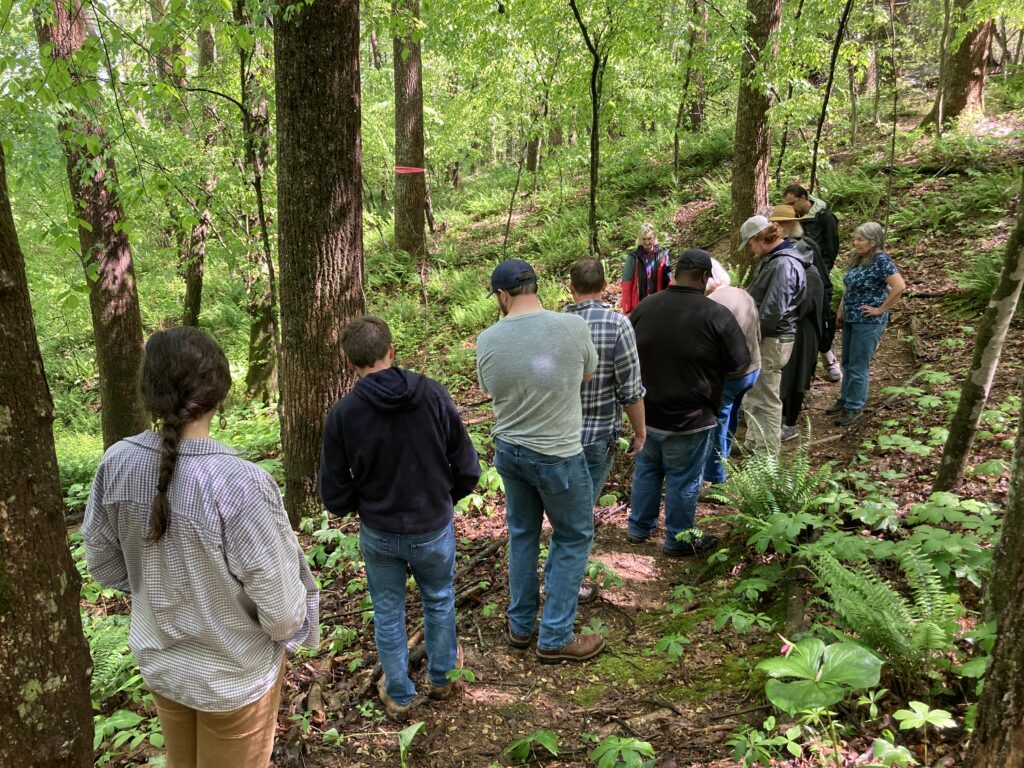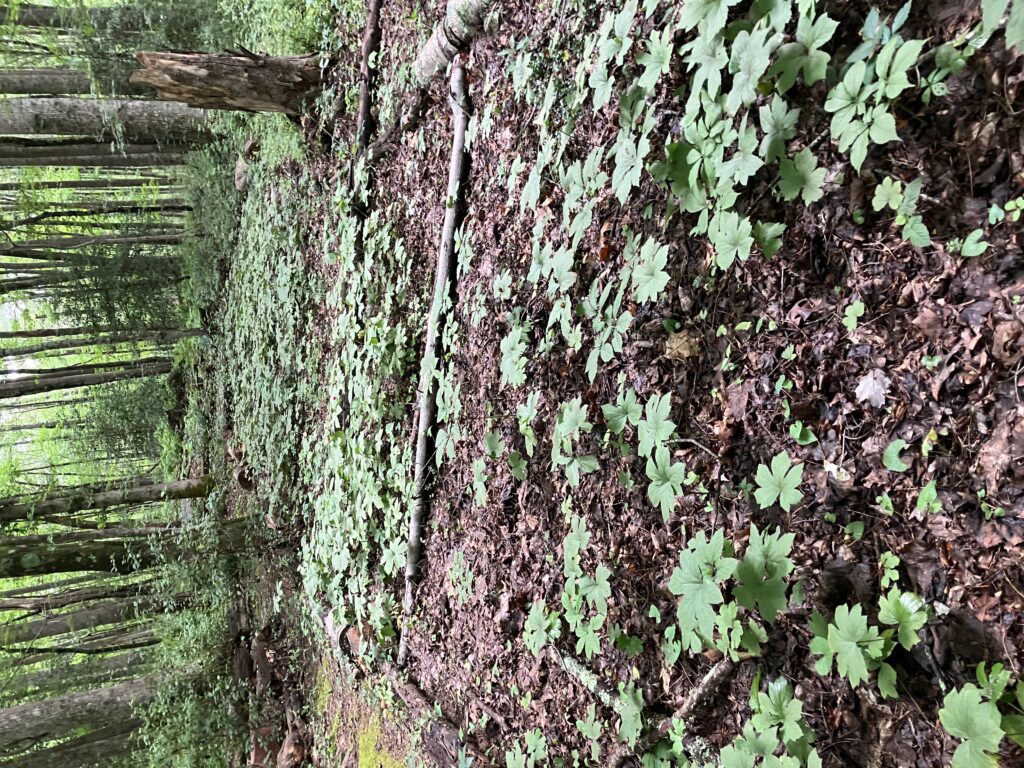New Grant to Support Forest Farming Efforts!
go.ncsu.edu/readext?943842
en Español / em Português
El inglés es el idioma de control de esta página. En la medida en que haya algún conflicto entre la traducción al inglés y la traducción, el inglés prevalece.
Al hacer clic en el enlace de traducción se activa un servicio de traducción gratuito para convertir la página al español. Al igual que con cualquier traducción por Internet, la conversión no es sensible al contexto y puede que no traduzca el texto en su significado original. NC State Extension no garantiza la exactitud del texto traducido. Por favor, tenga en cuenta que algunas aplicaciones y/o servicios pueden no funcionar como se espera cuando se traducen.
Português
Inglês é o idioma de controle desta página. Na medida que haja algum conflito entre o texto original em Inglês e a tradução, o Inglês prevalece.
Ao clicar no link de tradução, um serviço gratuito de tradução será ativado para converter a página para o Português. Como em qualquer tradução pela internet, a conversão não é sensivel ao contexto e pode não ocorrer a tradução para o significado orginal. O serviço de Extensão da Carolina do Norte (NC State Extension) não garante a exatidão do texto traduzido. Por favor, observe que algumas funções ou serviços podem não funcionar como esperado após a tradução.
English
English is the controlling language of this page. To the extent there is any conflict between the English text and the translation, English controls.
Clicking on the translation link activates a free translation service to convert the page to Spanish. As with any Internet translation, the conversion is not context-sensitive and may not translate the text to its original meaning. NC State Extension does not guarantee the accuracy of the translated text. Please note that some applications and/or services may not function as expected when translated.
Collapse ▲
Extension led group visiting the forest farming woodland botanicals demonstration in Mills River.
6/30/2023 – (edited from the official announcement) The Appalachian Regional Commission (ARC) awarded a new grant through its new Appalachian Regional Initiative for Stronger Economies (ARISE) funding opportunity, which drives large-scale economic transformation through multi-state collaboration:
- A $490,647 ARISE grant to the lead institution Virginia Tech will support a planning project seeking to grow forest farming business ventures and the Non-Timber Forest Products supply chain across Virginia, Kentucky, Maryland, North Carolina, Ohio, and West Virginia. Virginia Tech is collaborating with 11 organizations across six states to develop the plan.
- The NC State University component of the project will be led by Jeanine Davis and her staff in the NC Alternative Crops and Organics Program in the Department of Horticultural Science. The program is based out of the Mountain Horticultural Crops Research and Extension Center in the mountains of western North Carolina. For over 30 years Jeanine Davis and her staff have been engaged in forest farming research and extension activities with a focus on production of native woodland botanicals (ginseng, goldenseal, bloodroot, black cohosh, etc.). For most of this time, forest farming has been a small, niche, mostly unrecognized industry scattered throughout the Appalachian mountains. The rising demand for native forest products, the need to conserve native plant populations and protect forests, and desire to generate income from wooded land has brought forest farming to the attention of landowners, government agencies, universities, and non-profits across the country. This planning grant will give this group of 11 organizations, most who have worked together for many years through the Appalachian Beginning Forest Farmer Coalition, the opportunity to develop a long-term project to help farmers succeed in this emerging industry.

Goldenseal research plots in the woods in western North Carolina.
“I strongly believe that the key to transforming Appalachia’s economic vitality can be found in vision and collaboration across state lines,” said ARC Federal Co-Chair Gayle Manchin. “I’m encouraged by the way our newest ARISE grantees have come together to forge plans that will greatly increase workforce development and business ventures in ways that will positively affect the entire region.”
“President Biden’s Investing in America agenda is focused on building our economy from the bottom up and middle out, and today’s investments from the Appalachian Regional Commission will help drive economic development in the region for years to come,” said Senior Advisor to the President and White House Infrastructure Coordinator Mitch Landrieu. “These investments will support businesses, create good-paying jobs to meet industry workforce needs, and help hard-working Americans in underserved communities access new opportunities. It takes strong partnership at all levels of government and with the private sector and leaders in education to deliver for the people of Appalachia, and today’s announcement is a great example of what we can accomplish when we work together.”
The projects are funded through ARISE, ARC’s new initiative to drive large-scale, regional economic transformation through multi-state collaborative projects across Appalachia. Making available $73.5 million provided through the Bipartisan Infrastructure Law, also known as the Infrastructure Investment and Jobs Act of 2021, ARC launched ARISE in August of 2022 to strengthen Appalachian business and industry, and to grow and support the development of new economic opportunities across multiple states.
About the Appalachian Regional Commission
The Appalachian Regional Commission is an economic development entity of the federal government and 13 state governments focusing on 423 counties across the Appalachian Region. ARC’s mission is to innovate, partner, and invest to build community capacity and strengthen economic growth in Appalachia to help the Region achieve socioeconomic parity with the nation.
Reviewed by Jeanine Davis 12/6/2023.


